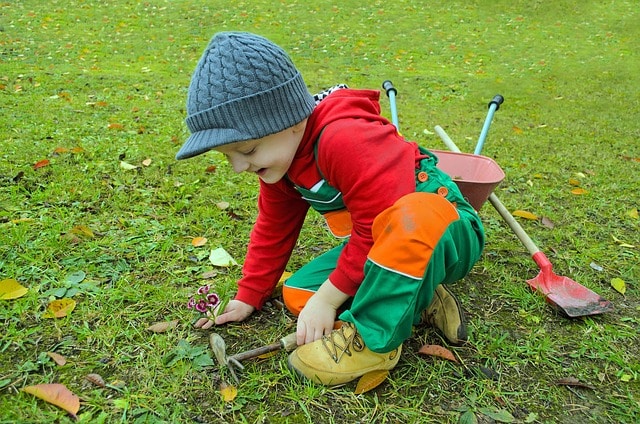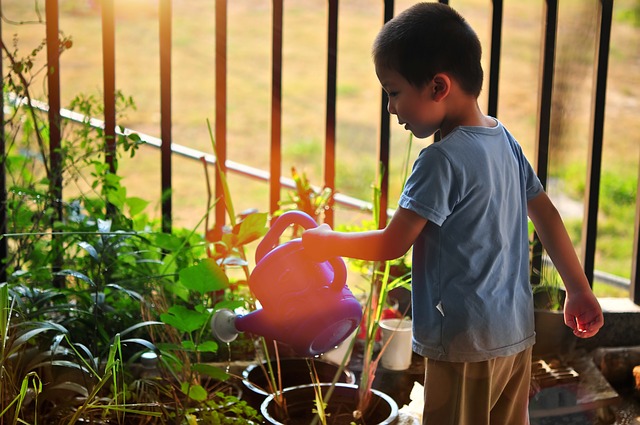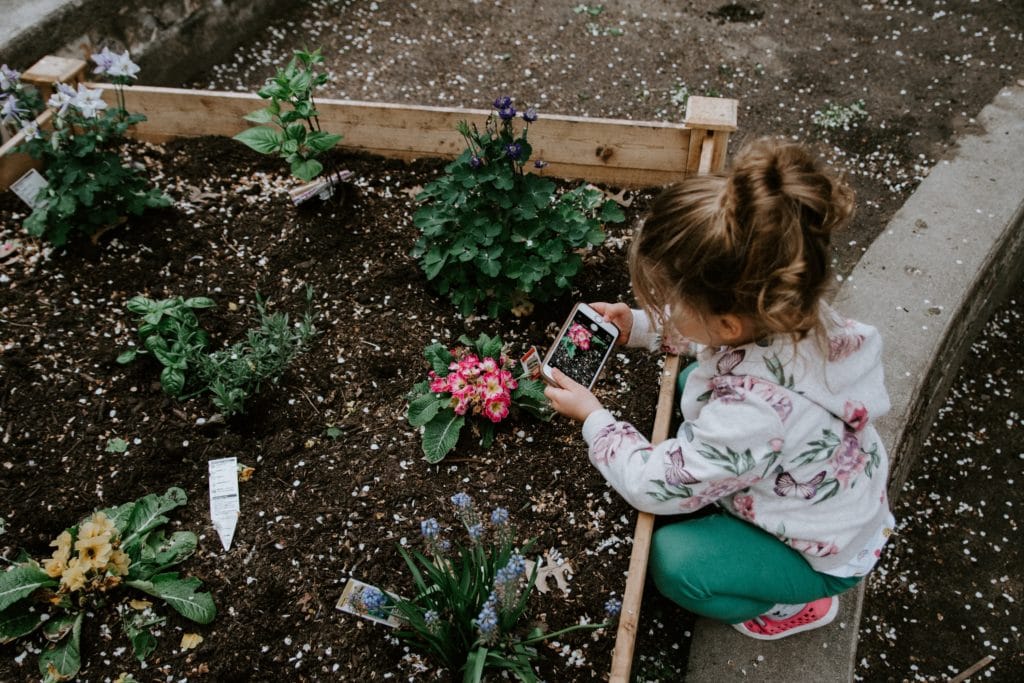How Does Gardening Help a Child’s Development

As a father of four young kids (ranging from 3 to 9yrs old), I’m always trying to help them identify interests and it’s always an added bonus when we share some similar hobbies. If you’re a gardener with kids, I’m sure they’ve at least attempted to see what you do out there in the garden. By introducing them to gardening it can be a great way to help them as they develop through childhood.
How does gardening help a child’s development? The basic needs of a child’s development can be supported through gardening activities. Research suggests seven areas of developmental needs.
- Need for Physical Activity which can be achieved through working in the garden like pulling weeds, moving soil, or lifting.
- Need for Competence and Achievement which can be met by successfully growing a plant to maturity or producing a harvest.
- Need for Self-Definition through helping children understand their role with nature and the environment.
- Need for Creative Expression by growing different types of plants or creating a visual garden.
- Need for Positive Social Interaction can increase through being involved in gardening with their parent.
- Need for Structure and Clear Limits can be accomplished by understanding the growing seasons and when to plant.
- Need for Meaningful Participation by planting something that helps produce sustainability.
Importance of Gardening in Early Childhood

As I’ve explored various topics on child development for the purpose of assisting with parenting my own or in my career working with children, I’ve seen a correlation of how gardening can be an amazing activity to promote healthy child development.
Young children begin to explore their senses at an early age. What better way to help them do this then by getting them out in the garden with you. Gardening provides a myriad of ways to meet children’s sensory needs.
Here are a few basic developmental needs for toddlers and how you can incorporate garden activities to meet these needs:
- Making choices– Allow kids to select which type of plant you will grow or give them a choice on which task to help you with in the garden.
- Developing motor skills and hand coordination– Have them utilize various garden tools to work with you in the garden. A small watering can would be great for hand coordination. Here are some kid’s garden tools worth checking out on Amazon.
- Gaining a knowledge of vocabulary and new words– As you’re out in the garden talk to your kids about what you’re doing or how things work. Words like photosynthesis or fertilizing are examples of new words to learn.
- Use their imagination and find interests– Utilizing various garden activities and games can help kids identify different aspects of gardening to find joy in it. These types of activities will help to promote creativity. You may find this post helpful: 10 Amazing Gardening Projects for Kids to Try Today
- Curiosity of the world– Kids have a fascination for pretty much anything new to them. Instead of just working with them in the garden, help them find various bugs and insects or the hidden nuances of the garden.
- Explore and Investigate– This goes along with curiosity, but can be incorporated more with experiments. Help kids to try different experiments like seeing what happens when you don’t water something or when something doesn’t get enough light.
- Learning self-reliance skills and opportunities for independence– Allow kids to have their own garden space to tend too.
How Do You Teach Young Kids About Gardening
If you’ve spent any amount of time around children you’ll notice that they have a ton of energy. It’s important to cater to the needs of children when teaching.
You can get away with doing a lot of talking when educating adults, but kid’s attention span tends to be much shorter, especially if they become disinterested.
It doesn’t mean that you should never teach through verbal communication, but doing things that help them to stay engaged and active will help. Here are a couple things to consider when teaching kids about gardening:
Keep it Positive
Kids thrive on positive praise and reinforcement when they accomplish something. Who doesn’t like to be recognized for a job well done? As kids make mistakes or become disinterested in various garden tasks, help them learn that it’s ok.
Encourage them to try again or help them to find something that they will enjoy. Creating visual’s for kids can be a positive way for them to record their progress.
Tone of Voice
How are you talking to your kids? If you’re out with a few kids, sometimes using a quiet tone of voice can help get their attention. Kids will have to focus more to understand what you’re saying and leads to being less distracted.
Offer Choices
Children want to have some sense of control and allowing them to have choices empowers them. Give them the option of what they want to plant or identifying a task that they want to complete in the garden.
Model
Show them how to do something by demonstrating how it’s done. As kids observe you doing something they will have an easier time understanding how it works. After you role model then walk them through it.
Learn with Play
Children tend to learn through play. Creating various games that help teach kids about the garden will go a long way. For example, having your child participate in a bug scavenger hunt or seeing who can pull the most weeds in an allotted time. Pretend to be superheroes hunting for food while picking crops.
Ideas on What to Teach Kids about Gardening

Don’t worry about providing a dissertation on creating sustainability through backyard gardening or the benefits of organic gardening, start small. Think about when you first started gardening and begin with the basics. It can be fun to explore gardening within the community like a botanical garden or arboretum to see various plants.
Allow your kids to dig and play in the soil, while helping them understand why soil is necessary for plant life. Sprout seeds indoors or incorporate small planters to teach children the basics of how to water, the need for drainage, how roots develop, and the need for sunlight. Grow plants that are rapid growers to engage their attention. Teach about nutrition and healthy eating with your vegetable garden.
Final Thoughts
Gardening provides numerous opportunities to support our child’s development. As we integrate them into our hobby they can gain the benefits that will help them to learn and grow.
Not only will our kids enhance their development, but they’ll gain a deeper appreciation for nature, and build a stronger bond with you. Who knows, maybe someday they’ll be teaching their gardening hobby to kids of their own.
